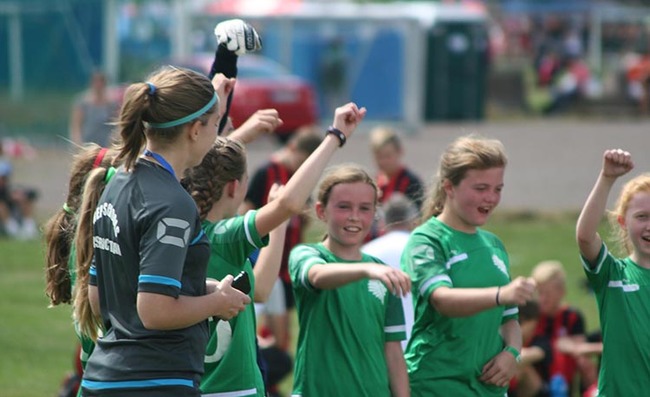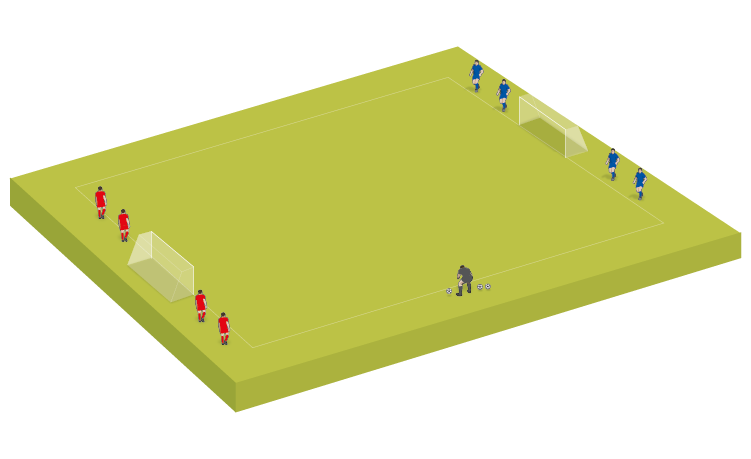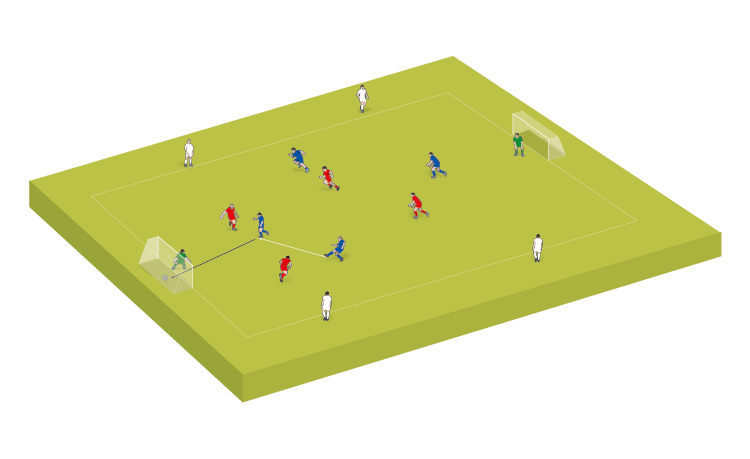5 tips when starting as a youth coach
Remember that it’s not about the winning, encourage the players to be brave on the ball and – most importantly – have fun. By Uefa B coach Hannah Duncan.
Picture this – the new season is just around the corner and you have somehow found yourself coaching your son’s or daughter’s team.
That certainly wasn’t the plan when they suddenly announced they wanted to play and you took them along to their first training session! But, after some cajoling, you volunteered and here we are.
And, while you may have made a brief foray into very amateur soccer yourself a few years ago, your experience of how the game is organised on a matchday may not be too up-to-date, certainly when it comes to looking after a bunch of very enthusiastic U11s.
With plenty of new coaches helping kids begin their love affair with the beautiful game, here are a few top tips to help you on your way...
01 Emphasise development over winning
Being completely frank, no-one cares if Greenhill Lions U8s won 6-0 on Saturday morning – not even the kids. Seriously.
What young players will remember when they get home is how much fun they had, seeing their friends and perhaps a skill they mastered, which they had learned in the last training session.
As long as your players keep coming back week after week, leave with smiles on their faces and are showing signs of improvement, that’s really all that matters.
If you do find yourself against a weaker team – as will likely happen at some point – take the opportunity to give players a new challenge or even offer one of your substitutes to the opposition, so they can play with an extra player and your players get more game time.
02 Rotate positions
No player in the foundation phase knows if they will be a deadly centre-forward or feline-like goalkeeper in 10 years’ time, so don’t pigeonhole them too early. Give players as many experiences and challenges as possible.
That player who wants to score all the goals might actually be a fantastic creative midfielder, or maurauding full-back, while the tall player who gets shoved in goal might actually love playing at centre-back.
03 Equal game time
Young players turn up to play. It’s our responsibility as coaches to give them as much time on the pitch as we can, regardless of their ability levels.
It can be difficult to ensure every player gets exactly the same number of minutes, so don’t beat yourself up if someone gets 10 minutes more than someone else this week – just try to equal that out next week.
04 Stay on the ball
As tempting as it may be to encourage players to pass like Barcelona, there is plenty of time for players and teams to develop that kind of cohesion.
For now, encourage players to love the ball and have confidence in possession, even in tight areas. If your defender decides to take on three attackers in their own penalty area and gets tackled and the team concedes, so what? Be sure to praise the bravery and intent – and tell them to give it another try.
If players can master the ball at seven or eight, there will be no stopping them.
05 Have fun!
This really is the be-all and end-all for young players. Water fights at summer training, fancy dress at Christmas and plenty of opportunities to try new things and make friends will keep players coming back.
Players can’t improve if they’re not at training – and they won’t be at training if it feels like an extension of the school day, or they are stood waiting for half the session.
And having fun goes for you as the coach, too – so enjoy it!
Related Files
Newsletter Sign Up
Coaches Testimonials

Gerald Kearney, Downtown Las Vegas Soccer Club

Paul Butler, Florida, USA

Rick Shields, Springboro, USA

Tony Green, Pierrefonds Titans, Quebec, Canada
Subscribe Today
Discover the simple way to become a more effective, more successful soccer coach
In a recent survey 89% of subscribers said Soccer Coach Weekly makes them more confident, 91% said Soccer Coach Weekly makes them a more effective coach and 93% said Soccer Coach Weekly makes them more inspired.
*includes 3 coaching manuals
Get Weekly Inspiration
All the latest techniques and approaches
Soccer Coach Weekly offers proven and easy to use soccer drills, coaching sessions, practice plans, small-sided games, warm-ups, training tips and advice.
We've been at the cutting edge of soccer coaching since we launched in 2007, creating resources for the grassroots youth coach, following best practice from around the world and insights from the professional game.







